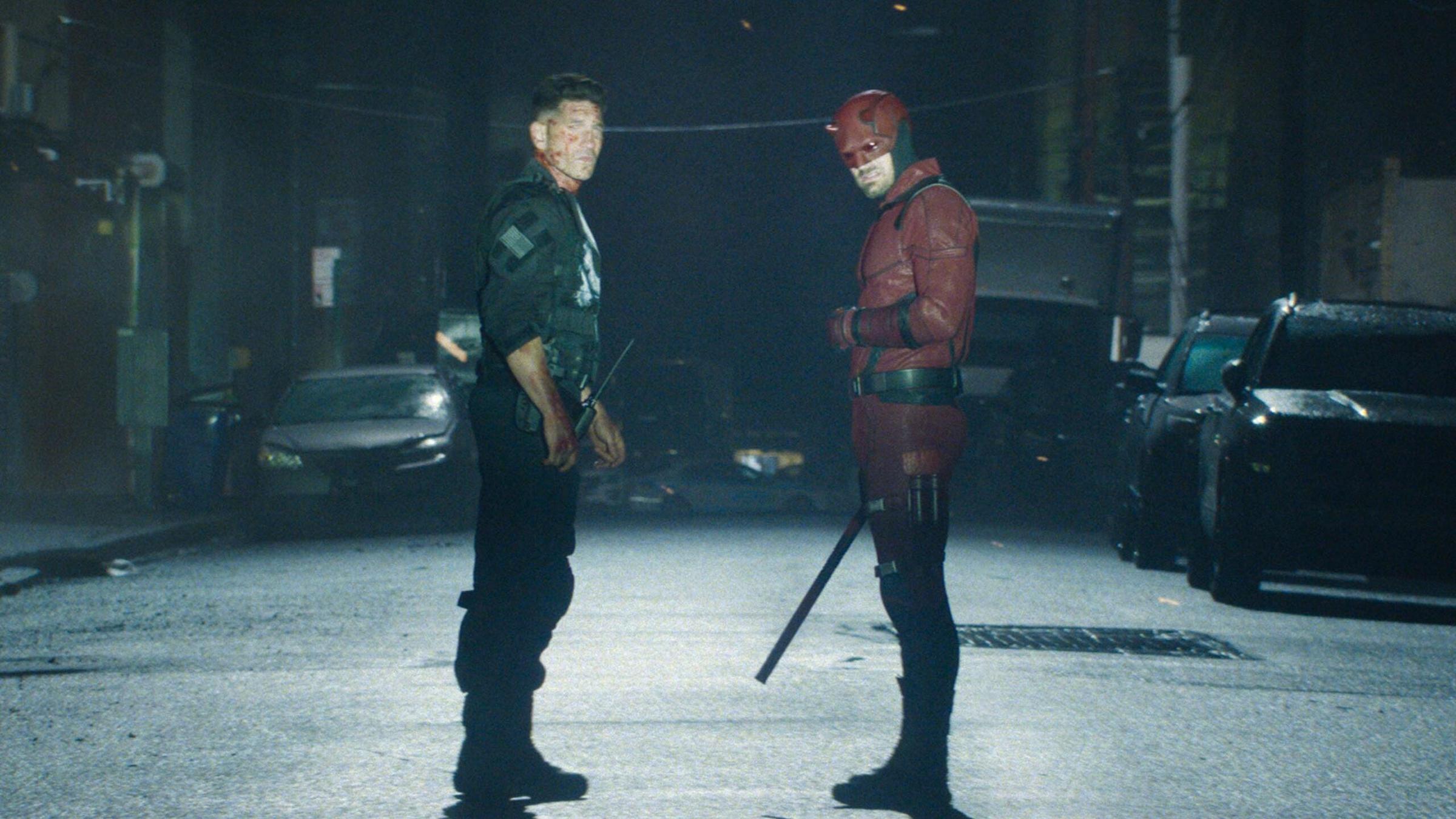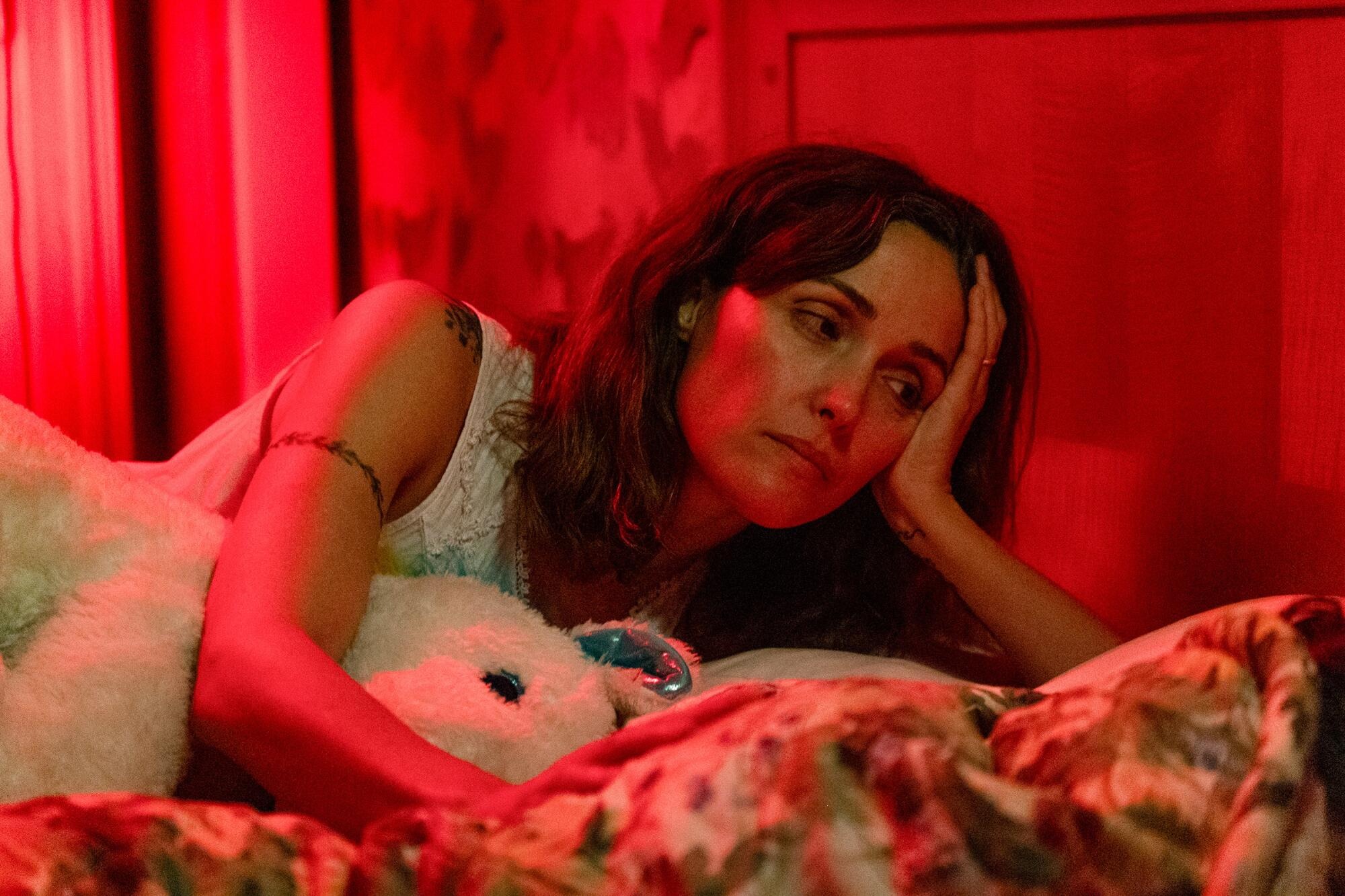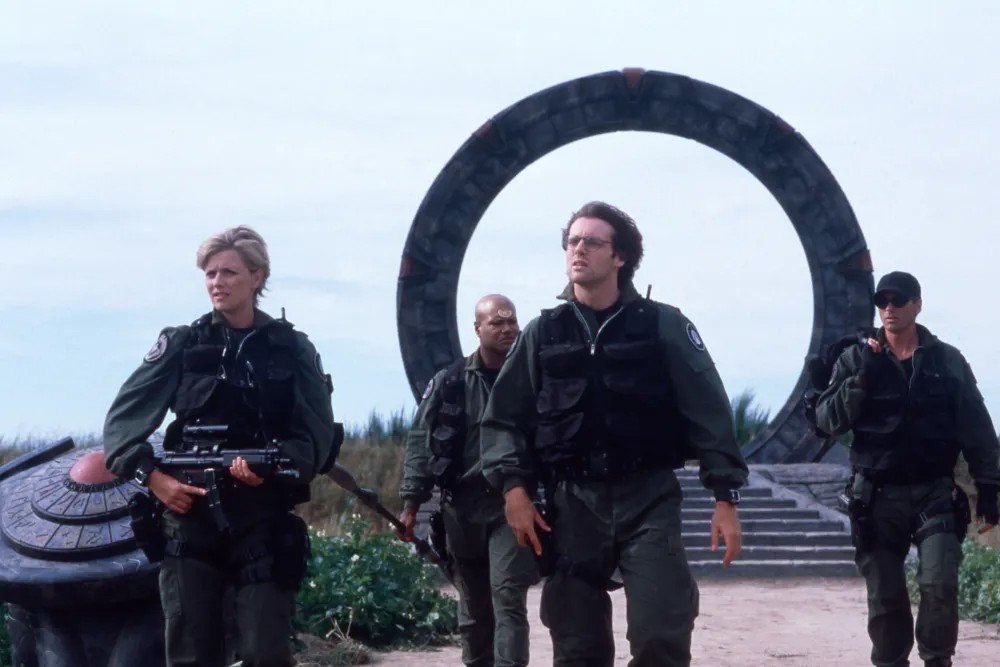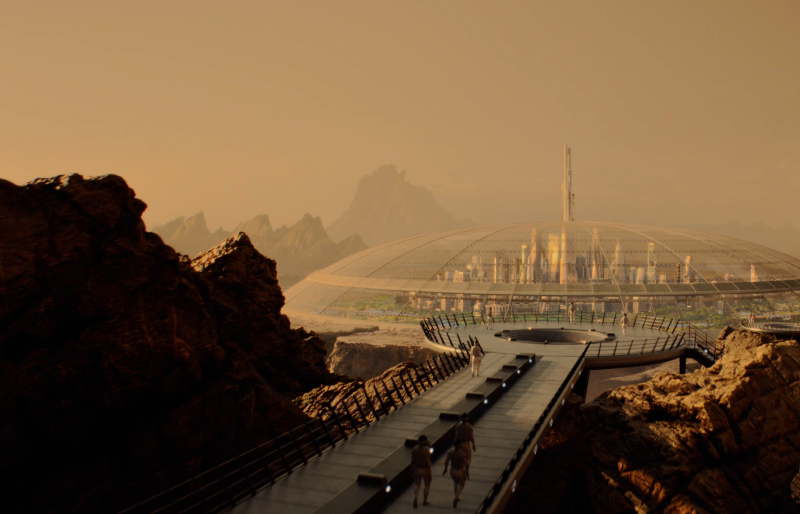
Somehow, Cosmos has taken on a whole new life of its own. It’s far outlived Carl Sagan’s original series, and Neil deGrasse Tyson and crew have served the name well. Now, the show has a third season set to hit at the end of this month in the form of Cosmos: Possible Worlds.
I had a chance to attend a round table with the creatives involved with the project, including creator, executive producer, writer, and director Ann Druyan, executive producer, writer, and director Brannon Braga, and executive producer Jason Clark.
“This third season of ‘Cosmos: Possible Worlds’ is our boldest yet,” Druyan said in a statement last December. “The ‘Ship of the Imagination’ will carry us places we never dared to venture before: lost worlds and worlds to come, deep into the future and straight through that hole in the curtain masking other realities — and all of it rigorously informed by science and made real by lavish VFX.”
RELATED – Ad Astra Trailer: Brad Pitt’s Sci-Fi Film Has Shades Of Interstellar
Cosmos: Possible Worlds hits National Geographic on February 25!
Press: So, what were the…what were the first conversations of bringing Cosmos back and coming up with a fresh angle and a fresh way forward after the success you had?
Ann Druyan: So I was sitting in Ithaca, in my house, and Brannon and I had just finished our second season…well, my second season, his first season of Cosmos…and both of us independently were hunting and gathering stories that might work for the third season. And after a while we got together in a room and we sat there for about a year or two, and talked, and talked, and talked, and wrote the 13 scripts.
For us, because a story in Cosmos has to be like a threefer a fourfer, it’s got to be both really dramatic, moving, compelling story because we’re a story-driven species. And then it’s got to be a way into an idea, a scientific idea so that the audience can take ownership of the idea by living the drama of a story. It’s got to be an appreciation into a deeper understanding of nature. So when we find…when we agree that, that we found one of those stories, the two of us have the best time sitting and thinking together and writing together and we actually write in the room together, and that’s how it goes.
Press: Cool.
Druyan: And of course then we vet the stories with scientists, and yeah.
Brannon Braga: Yeah, no, it’s that it’s, yeah…I mean, it’s a fun process because sometimes what we thought we set the story we thought we were starting to tell, changes as we dig deeper into the topic, but it’s…and you can’t make anything up. Those scripts are narrative in nature and might even resemble like a one hour’s teleplay because they are written, there’s not-
Druyan: It’s completely broken. There’s no ad-libbing.
Braga: You can’t make anything up, so everything is recent. We research everything very carefully and sometimes it takes you in a very unexpected direction, so it’s a lot of fun to do.
Press: I was intrigued by what you said about this…about the idea of a curtain masking other realities, so could you expand upon that?
Druyan: Well, one of the great learning experiences for us in the writing of this season was exploring the quantum realm, and it struck us that when in the early 1800s when the double-slit experiment was first performed, it was like finding a hole in the curtain that masks. The Matrix. The fact that it’s still not understood is something that we love and that science loves because science, unlike other things we do, has a great tolerance for ambiguity. Together, we ventured into this other universe, really, where different laws apply, where the laws of classical physics are not obeyed, so that was a great jumping off point for us in terms of the…in the imaginative journey that was possible.
Braga: Yeah. We felt like we…it was a rite of passage of sorts, of pulling back the curtain of reality the quantum physics shows you, and it’s an impossible journey, but then at the end you just kind of have to give in.
Druyan: Yeah, we call that one our “Twilight Zone” episode because it has that quality to it. And I love the idea. We call it magic without lies. And I love that idea that is possible to venture to a place within, within science where things…logical paradox is abound. That was the great fun of that. It’s like looking at an optical illusion. You see it for a moment, then you can’t see it, you can’t find it, and then you see it. That’s how we felt. You know, we’d have moments of comprehension and alternating with moments of like, what? No, that’s not…it’s just not possible. And then Jeff-
Jeff Okun: That’s me.
Druyan: Then Jeff found a way…many visual ways to take us to these places so that it wasn’t just that it was visually beautiful, but that there was another means of making these ideas real and accessible. That was a-
Okun: Yeah, the quantum universe was very difficult. Nobody has the same understanding of it. We talked to quantum physicist to try to clear things up. Our science advisor thought one thing, I thought another. Brannon thought something. Annie thought something. In the end, we had to pick a trust, and Brannon, our trusts on this show all the way through…they hold us to the highest of science standards, so oddly enough, we had less iterations in the quantum physics realm, but they were more wild than anything I’ve ever done.
Braga: I think that might be in part because I don’t know that anybody’s actually tried to shrink a human on a ship and go there-
Druyan: To become a photon.
Braga: …to become a photon in the quantum realm…I’ve never seen that stuff hasn’t been done-
Druyan: It’s never been done.
Braga: So, you would…
Druyan: Yes. I mean to be, in other words, just the kind of wonderful…at the episode starts…there’s a guy in a turban with a torch and he’s like running, running through these underground passageways. And he finally comes to a wall and he uses the torch to break into a tomb. And in that tomb are the artifacts of ancient Egypt. But on the far wall is this doorway into the quantum universe. Why? Because Thomas Young, who performed the first double slit experiment, was also the first person to break the code of hieroglyphics. He’s a great story for us because…who’s not interested in ancient Egyptian tombs and in the quantum realm in this other universe so completely counterintuitive from our own.
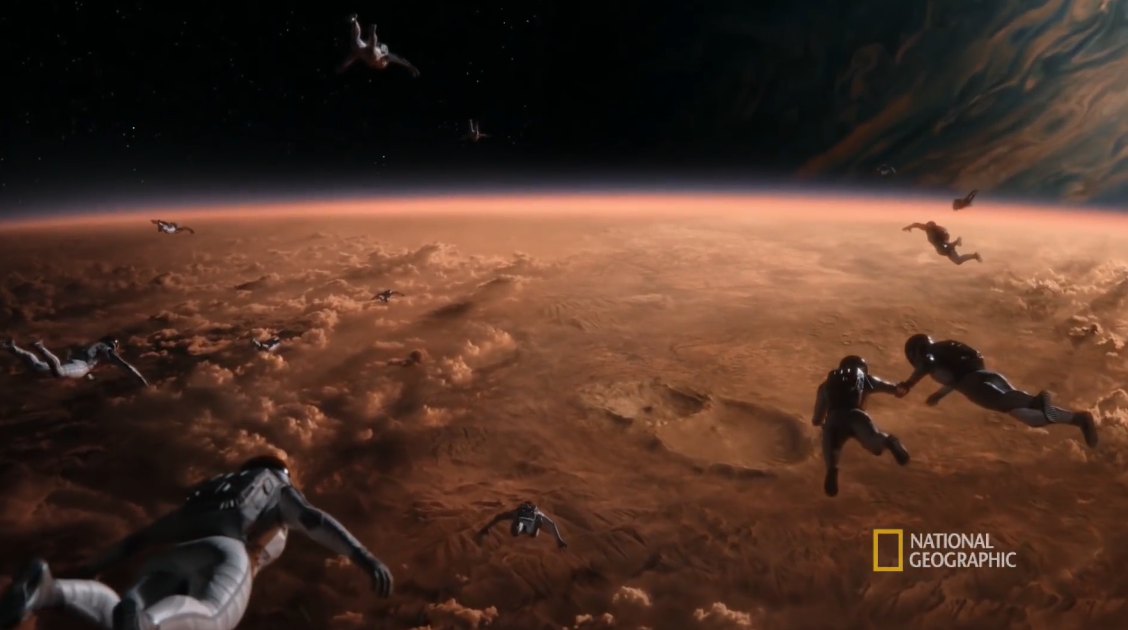
Press: Can you maybe elaborate on the challenges to visualize something from physics that’s not…it’s not fully understood or maybe it’s as you put it, it’s understood in different, different ways, not agreed upon?
Okun: First, we start with real physics. I mean, it’s a lengthy process. First we start with real physics while we’re writing those formulas to trick a computer into doing it. We’re also doing research and looking at any visual material that exists, and we’re deciding, between the three of us, what might look nice, what wouldn’t look nice. Then we tried to write a formula and make that work. So in the quantum physics episode, we’re using a lot of formulas, and the formulas are driving the graphics creation. So we’re…we actually got computers to do things they can’t do.
So they’re…we’re looking at one or two or three of those quantum universes that we traveled through that the computer just spit out, and we’re looking at it like explorers as the first time anybody’s ever seen anything like this. It’s interesting for me from a vantage point of the vendor. My artists are going, “This is a piece of not good stuff.” And you’re looking at it going, “Oh, this is the most amazing thing I’ve ever seen”, and then we pass it through here and we refine it. But the idea of behind the whole series is that science, when you really get into science, reveals such amazing beauty and eye-extrapolated truths. That’s not acceptable-
Press: Yeah.
Okun: …that my generation and my kids…we were raised not knowing this stuff. Science was always put on a back burner in high school, I got a D in physics…
Press: How do you visualize physics before computers?
Okun: Well, that’s just the key to the whole educational system is they were teaching stuff instead of laying problems and saying, “Solve it. Let me see your solutions.” Rather than learning rote stuff, this show allows you to test what you’re seeing and see if you agree with it, and if not…so the whole portal of the Cosmos is to open those neuropathways in your brain to begin to critically think again.
When you create these visual effects, some of them aren’t perfect, but they’re all scientifically accurate, and most of them are intensely beautiful. But they all hopefully lead the viewer to that thought process.
Press: What does a quark look like? Because we’re all thinking little points of light, like little Christmas lights. It’s got to be more to it than that, like you’re visualizing it.
Okun: It depends on which way you want to represent a quark…the classical way to extrapolate through the subatomic particle world of things, but again, thanks to Ann and Brannon, that was unacceptable. And what we found was some science-
Press: Despite something like hyper-
Okun: Well the proton, a proton, a particle of light-
Druyan: The photon.
Okun: The photon, I’m sorry. I have a lot to learn.
Druyan: No, I think everybody does.
Press: But he knows how the warp engine works.
Braga: Yeah, fake stuff.
Okun: But the photon, we realized, researching and even looking on simple YouTube, no one had really gone out of their way to say, “What does a photon look like?” because it’s all inferred, right? We’re not looking at things directly, so we had to decide what were photons going to look like on Cosmos. And it was fascinating. And we came up with some really cool.
Druyan: And also to depict the phenomenon of entanglement. You know, the idea of these particles and different parts of the universe so completely separated by the vastness of space time. And yet, do something to one and in a faster than light way-
Press: It’s magic.
Druyan: It’s magic without lies, which is the name of the episode, and that’s the wonder of it, really, to convey the wonder… I mean, I’m so proud of the fact that the first season of Cosmos, aired in 1980, and if you did a census of how many people who do science, who teach science, who study science were first attracted to science by Cosmos, it would be I think a significant fraction of the working scientists today. That’s the thrill of it…is really…is to expose, especially, most especially, those people who haven’t been given their fair share of revelation of…from science, and to engage them so that we can get a few inches closer to actually having a democratic society where this…these treasures are more widely distributed.
Press: What do you think? What would Carl have made on current state of science education and also the challenges of the media landscape with all these, all this noise and-
Druyan: Yeah. Well, even though I know I never…I don’t believe I’ll ever see Carl again, I can’t help but have this kind of mental conversation with him at times… just because I think, if I had to tell him what the current state of affairs are in the United States, and the ways in which those…those dangers such as climate change, which he was sounding the alarm on, going back to the 1950s and in the first season of cosmos, we did it then. That was 1980, so it’s 40 years later, and I think it would be so discouraging and daunting to tell him where we are now.
But I know…I don’t know what Carl would say because I would ever speak for him. He was beyond brilliant, poetic learner-
Press: What about the internet? Isn’t the ability to access scientific information probably the easiest? It’s just-
Druyan: Oh, absolutely.
Braga: Not all of it’s correct.
Druyan: No.
Press: That was always true, that all of, but…
Druyan: But no, I think he would be delighted, and I am…and that’s what gives me one of the things…that gives me so much hope for the future is the accessibility of information. We would…we’d have to look it up. We don’t have to go to the library. We’d look it up in the encyclopedia Britannica, you know, we, we prided ourselves with our children that we wouldn’t…if they asked a question we didn’t know the answer to. We would follow it to the ends of the earth to be able to answer that question as that kind of ethos of our family, and I know he would be thrilled with-
Press: That’s why Google has a billion dollar valuation.
Druyan: Yeah.
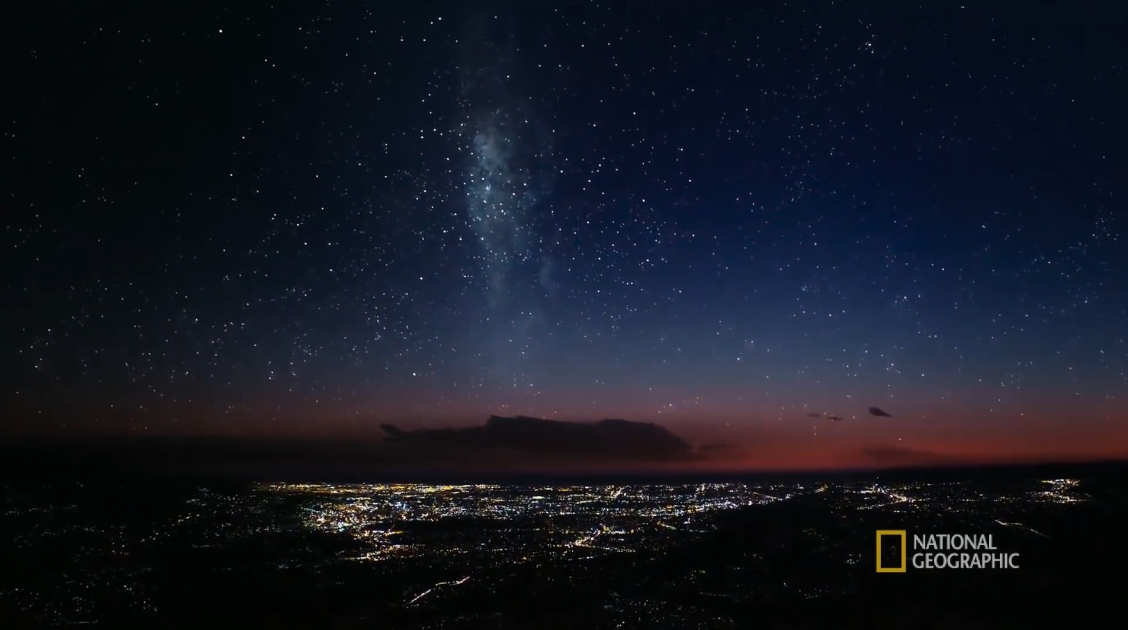
Press: But is there not also a problem with that…that everything is available, but in short little snippets? And is one of the challenges that you also have to face to put this into a…long form where you do explain some contexts?
Druyan: Yes. Well, a couple of thoughts on that. One is, go to JSTOR and look more deeply. There are all these things that you can do so yes, the initial tranche of information can be superficial, but you have the means to go as deep as you want. And second of all, I’m really proud to say that I wrote a companion book to this series for those who do want to go deeper because I know it was possible for some of the heroes of the series and some of the great stories of the series that you can only…you only have so much time in a television hour to go into it. In the book, it was possible for me to tell more of the amazing things that we discovered.
Press: I’m looking forward to that. And when’s it out?
Druyan: February 25th!
Press: Is there any interest in going out and somehow being involved more in our education system?
Druyan: This is something I would love to develop maybe has to wait until season four, but I would like to develop that more deeply. One of the things that’s very gratifying about Cosmos is from the first season onward, it’s been assigned in classrooms. One of the astonishing things is that very often the first season, which is 40 years old, 40 years of the most eventful years in the history of science, is still assigned because it holds up.
Yes, I dream of a bureau of science exciters that could travel to every classroom in…globally, but especially to those places that are underserved to attract and engage all those great minds that we squander because of our selfishness, our short-term thinking. I don’t know why, but that would be the greatest thing.
Don’t forget to share this post on your Facebook wall and with your Twitter followers! Just hit the buttons on the top of this page.
—–
Have you checked out LRM Online’s official podcast feed yet The LRM Online Podcast Network, which includes our flagship podcast Los Fanboys, our premiere podcast Breaking Geek Radio: The Podcast, and our morning show LRMornings? Check it out by listening below. It’s also available on all your favorite podcast apps!
Subscribe on: Apple Podcasts | Spotify | SoundCloud | Stitcher | Google Play

 FOR FANBOYS, BY FANBOYS
Have you checked out LRM Online’s official podcasts and videos on The Genreverse Podcast Network? Available on YouTube and all your favorite podcast apps, This multimedia empire includes The Daily CoG, Breaking Geek Radio: The Podcast, GeekScholars Movie News, Anime-Versal Review Podcast, and our Star Wars dedicated podcast The Cantina. Check it out by listening on all your favorite podcast apps, or watching on YouTube!
Subscribe on: Apple Podcasts | Spotify | SoundCloud | Stitcher | Google Play
FOR FANBOYS, BY FANBOYS
Have you checked out LRM Online’s official podcasts and videos on The Genreverse Podcast Network? Available on YouTube and all your favorite podcast apps, This multimedia empire includes The Daily CoG, Breaking Geek Radio: The Podcast, GeekScholars Movie News, Anime-Versal Review Podcast, and our Star Wars dedicated podcast The Cantina. Check it out by listening on all your favorite podcast apps, or watching on YouTube!
Subscribe on: Apple Podcasts | Spotify | SoundCloud | Stitcher | Google Play

